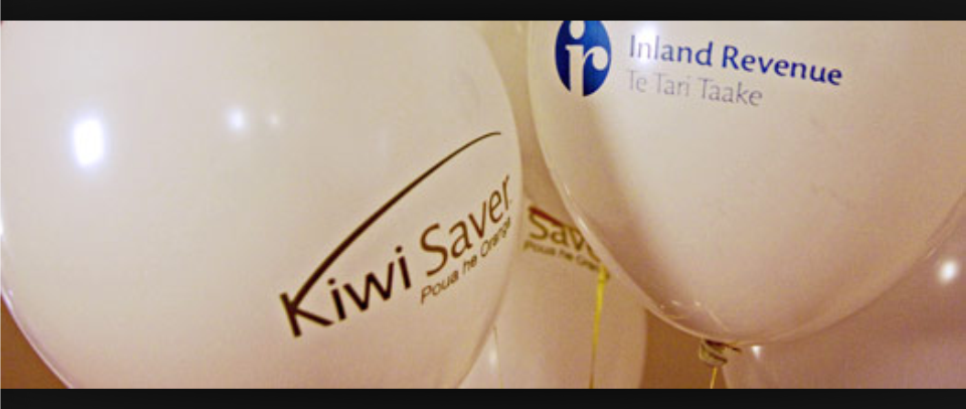News
TaxTalk Newsletter Aug / Sep 15

What employers need to know about KiwiSaver
- As an employer, you play an important role in helping your employees save for their retirement. There are some things you must do and some things you should keep in mind about KiwiSaver for your employees.
All employers must:
- offer KiwiSaver to all their employees who meet the eligibility rules
- give a copy of the ‘Your introduction to KiwiSaver’ - employee information (KS3) factsheet and KiwiSaver deduction form (KS2) to eligible new employees and any existing employees that ask for one (call 0800 257 773 to request copies or download them)
- check the eligibility of new employees and enrol them (if they're eligible)
- make deductions and contributions for new employees who are already KiwiSaver members
- make KiwiSaver deductions for any employee who is a member of KiwiSaver even if they have another superannuation scheme you contribute to unless the existing scheme is a complying super fund
- make sure existing KiwiSaver members are getting the correct deductions and contributions
- ask to see the contributions holiday letter if a new employee advises they're on a contributions holiday
- restart deductions and contributions at the expiry of a contributions holiday as soon as you get a letter from the IRD
- send any New employee opt-out request (KS10) forms you receive to the IRD.
If you're not sure if your new employee is a KiwiSaver member treat them as a non-member. To be eligible to join, your employee must be aged 18 or over, under age 65 (currently the age of eligibility for New Zealand Superannuation) and living, or normally living, in New Zealand.
Casual employees
Casual employees engaged on an irregular and intermittent basis and who receive holiday pay with their wages are not subject to automatic enrolment in KiwiSaver. They can join either through you or enrolling directly with a KiwiSaver scheme provider.
But if a casual employee is already a KiwiSaver member, you must make deductions and pay compulsory employer contributions for them.
You can find more information in our KiwiSaver employer guide (KS4) on page 5. There's also a flowchart on page 9 that will help you decide if a new employee should be automatically enrolled.
Making changes to KiwiSaver deductions
When you reduce an employee's KiwiSaver deductions, a hold on the account is activated until the funds are returned by the employee's scheme provider.
If you've asked for this credit from the reassessment to be moved forward to another period, there may be a small delay. Please take this into account when you make your request as your account goes into "arrears" for this period of time.
 Seven tips for email senders
Seven tips for email senders
Here are seven tips which will help email readability.
1. Keep emails concise. Think about the message you want to convey, and do it in as few words as possible. Long emails don't get read.
2. Draw attention with the subject line. Like a headline in a newspaper it should entice the reader to look for more details.
3. Avoid attachments – they should only be what someone requests. Never try to convey a message with an attachment. Opening an attachment is an extra step readers are unlikely to take. Say what you want to say in the body of the email.
4. Check the text. Proof read before you hit the send button. Spelling mistakes and 'text-speak' are unprofessional.
5. Double-check forwarded messages. Beware forwarding a message with a thread deep down in the email that might have been sent to you in confidence.
6. Never assume privacy. Assume that your email will be read by others; after all you have no control over what happens to your email once you send it. So be courteous and respectful.
7. Take a breath. Never send an email in anger. If you receive an annoying email, never respond immediately. Put the email aside and reply when you are calmer. Consider always leaving those difficult emails until next day. You’ll be more rational.
 Keeping hard earned wealth a challenge
Keeping hard earned wealth a challenge
We have seen many clients work very hard only to lose some or all of their savings. And they’re not stupid people, quite the contrary. Keeping your wealth is a challenge. You need to think about how to do this. Also, think about why the mistakes have been made. Greed? Bad advice? Putting all their eggs in one basket? Collapse of the sharemarket?
You’ll be lucky to avoid making some mistakes. Let them be relatively small. Here are a few examples of how you could have made mistakes:
- Ross Financial Management promising exceptional results.
- South Canterbury Finance Company was a safe finance company wasn’t it?
- Lending to the wrong finance companies, often on the advice of a professional.
- Many tax avoidance schemes such as pine trees, kiwifruit, alpacas and films have not worked out so well.
- Bubbles bursting, such as the sharemarket in 1987.
- Over-exposure to debt when the market recedes, usually while investing in real estate or the sharemarket.
- ANZ Bank promoting ‘Ing’ to its customers. Do you remember what happened?
So what should you do? It's not our job to provide financial advice and the law requires us not to do so. Besides, we don’t have the specialist knowledge required. However, consider these points:
- The higher the return on your investment, the greater the risk. Don’t be greedy.
- Keep alert. Doing what everyone else does is, at times, wrong. Recently, gold was an example of this. It was going up for ever, wasn’t it! The 1987 sharemarket collapse was another.
- Recognise your mistakes and maybe you should sell out before they get worse. Have you the courage to do this?
- It’s often a good strategy to get rid of your losers rather than cash in your winners. If your winners continue to win, you’re better to stay with them. You may have heard it said “No one ever went broke taking a profit”. It sounds wise advice but maybe it’s those who hang on to their good investments who really make the profits.
- Spread your risks.
- If you're tempted into a scheme which looks too good to be true, it probably is.
- If you really are tempted, don’t go in big time.
- Only invest money you can afford to lose.
Under promise, over deliver for good referrals
It should be obvious to anyone in business, not keeping your word does nothing to enhance your image. It's often hard to tell a customer, very politely of course, “You’ll have to wait”. You might be a very small building company and know you won’t have a gap in your work for six months.
If this is the situation, tell the customer you can start in seven months, turn up after 6½ and you’ll be praised. Say you’ll be along in three months (to keep the customer happy) and they’ll hate you for taking six.
Never promise more than you can achieve. It's better to lose jobs than to upset customers, because happy customers are the very people who are going to recommend you for your next job. You’ll get payback when the economy goes bad again, as it inevitably will one day—you’ll get referrals when others won’t.
 Take care with
Take care with
bank discussions
Anything you say to a bank can be written down and used in evidence against you. Not by the bank so much as the Tax Department.
It is not confidential from the IRD. Always imagine an officer of the department is listening to your every word.
You have no control over the notes your bank manager makes of your meeting. Just in case he/she makes a mistake and writes a note of something he/she imagines was said, make a detailed diary note yourself immediately following the meeting.
For example, if you were to buy a property for renting and were to tell the bank there is a good capital gain to be made, this could be interpreted by the IRD as being a purchase made to get a capital gain. Consequence: taxable income.
If you have the intention to make a profit and a reasonable prospect of success, the eventual gain on any transaction you are engaged in is probably taxable. So, if you buy a rental property but have in mind selling it for a profit some time in the future, the profit on sale is taxable. On the other hand, if you buy the same rental property as a long-term investment to provide income in future years, you are not taxed on the profit you make on the eventual sale.
We all know property prices rise over time. So the person who buys to rent is aware there's likely to be a capital gain on sale of the property. The issue is you must buy for the income, not the capital gain.
The same applies to the sharemarket. Buy shares like Xero for fat dividends once they make profits and your sale of Xero shares for a gain is not taxable. Buy Genesis shares and sell them soon after issue “to take a profit” as sharebrokers say, and the gain is probably taxable.
Important: This is not advice. Clients should not act solely on the basis of the material contained in the Tax Talk Newsletter. Items herein are general comments only and do not constitute nor convey advice per se. Changes in legislation may occur quickly. We therefore recommend that our formal advice be sought before acting in any of the areas. The Tax Talk Newsletter is issued as a helpful guide to our clients and for their private information. Therefore it should be regarded as confidential and should not be made available to any person without our prior approval.




